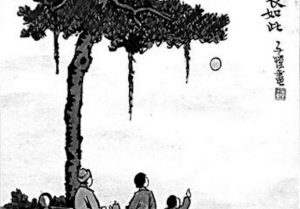Each day our senses are bombarded with various experiences. As soon as we wake up a flood of information enters into our eyes and ears. We may turn on our computer, begin reading the day’s news, listen to the radio or talk with our housemates. During the day we react and adapt to an infinite number of sights and sounds, often without much awareness at all. In this way, our approach to being conscious is largely habitual. Much of the daily flood of information into our senses is forgotten and rarely forms a lasting memory. However, occasionally an event may occur that leaves an indelible impression on our minds. These impressions can be as hard to remove as a scar from our bodies.
Often such strong memories are associated with very intense experiences, either of pleasure or pain. While reliving our good memories can be an enjoyable experience, the recollection of bad memories can be a constant source of pain and suffering that appears to be impossible to overcome. Bad memories especially have a tendency to jump up into our mind when we are least expecting it. They take us by surprise and cause a lot of anxiety as we relive the experience again. Our aversion to that mental object often means that it becomes causally connected to this state of anxiety. In this way, whenever we experience anxiety a flood of bad memories return to haunt us and often deepen our sense of hopelessness. The mutual conditioning between bad memories and anxiety can lead us to be imprisoned by our own minds, terrified by the images and
feelings we create for ourselves. The habitual nature of memory, especially those memories that have become stigmatised in a certain way, can often seem like an unbreakable cycle and those who have experienced great suffering may feel like they will carry the burden of these memories for the rest of their lives.
Yet, is there a way to defeat the arising of bad memories and the anxiety that is both their cause and production? From my own experience, I have managed to reduce, to a certain extent, the habitual recollection of bad memories by altering my relationship with them. Certainly on this matter Buddhist teachings provide a deep resource. A large part of the habitual nature of the arising of bad memories is the fact that we understand that these memories belong to us and that they represent part of our selves. For at the time of their arising they seem so concrete. We understand that our memory represents an accurate portrayal of a past event and, in doing so, we create a fictional past that appears real and stable. In actuality, the past event disappeared in an instant and no longer exists. In addition, the person that was present at that event, the one we often refer to as “I”, no longer exists either. Therefore, according to the Buddha’s teaching of impermanence and non-self, memories do not refer to any real event and they are not possessed by us. In truth, we have no memories.
I have come across many useful practices that allow us to detach from memories and to see them as illusory, with no foundation in an existing past event. The most beneficial for me has been a breathing practice outlined by Thich Nhat Hanh. I adapted it slightly to suit my own preference and I hope that it may be useful to some of you:
Breathing in, I welcome a memory that causes suffering.
Breathing out, I welcome mindfulness within me.
Breathing in, I know that, as with all things, this memory will fade away.
Breathing out, I know it as an illusion and not-self.
I have found that after these two breaths the anxiety that usually accompanies the arising of bad memories fades away quickly, if not instantly. Over the course of time it may be possible to interrupt the habitual arising of bad memories and to transform them into an opportunity to develop mindfulness and wisdom. I hope at least that this practice may be a small help along that path.














